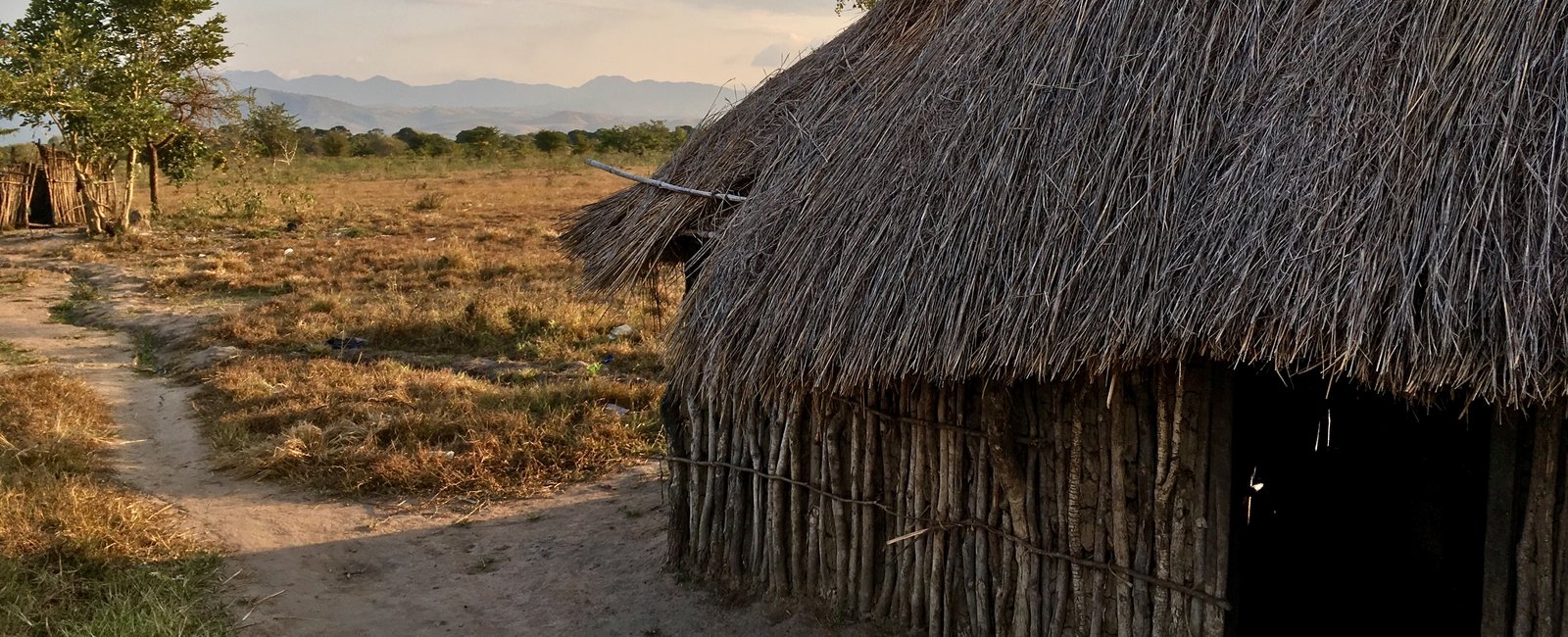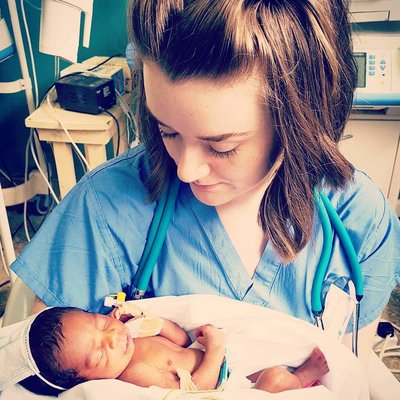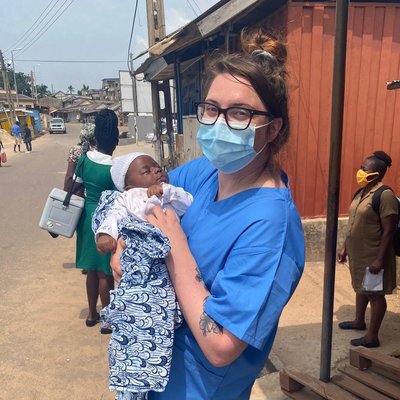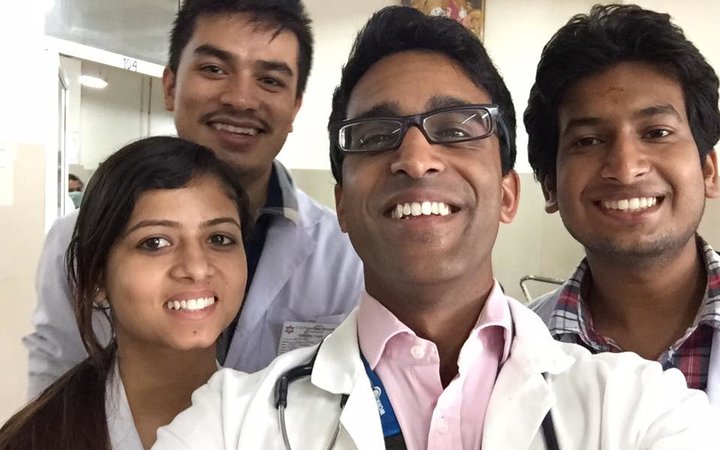Leanne travelled to Tanzania back in 2011 for her overseas adult nursing placement.
Now working as a Tissue Viability Nurse Specialist, Leanne reflects on her time in Tanzania and explains how her experience overseas helped her to where she is today…
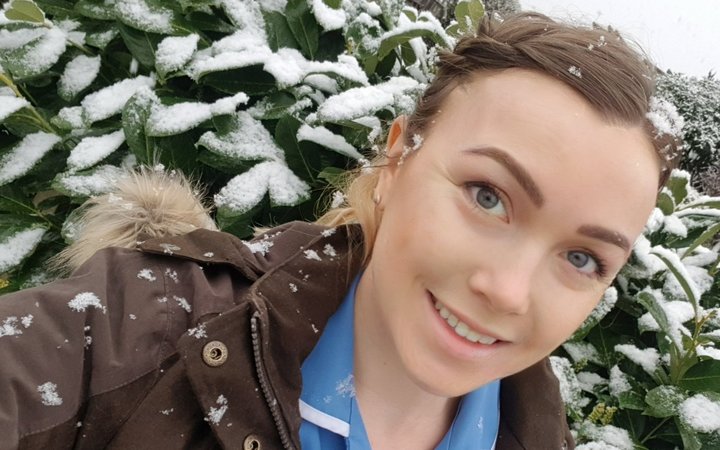
What made you want to study nursing in the first place?
It all just happened very organically. My mum was a carer, and I studied Health and Social Care at college. While studying, I also had a community care role.
I went to the University of Manchester and did the Adult Nursing Diploma. During the first year, I honestly thought I was going to quit. I’d never worked in a ward, and there were lots that I hadn’t seen before.
I was used to working with older people, which was great, and I’m a people person. But, suddenly, being on a ward and looking after people that were very sick was a shock.
I remember one day that threw me. A patient had had a seizure, and they’d bitten through their tongue. I was a first-year student nurse and wanted to help, but I didn’t know how to at the time. However, I spent some time reflecting on this particular day, which helped me realise that nursing was still what I wanted to do.
And you studied at the University of Manchester – what was that like?
I went straight from college to university, so as much as it was exciting, it was also very daunting.
I was the first person in my family to go, so it was surreal then. My grandmother was proud of me because her grandma was a nurse, too, and she had been a nurse in London during the war.
During my first year, I was in halls, and when you're nursing, it’s a very different university experience. I had two weeks of orientation, then I went straight out onto placement. I had a regular Friday when I went to university, but I also had to complete thirty placement hours. Plus, I had my assignments to complete on top of that.
Regardless of this, I still wanted to have the proper university experience. It was important to balance it all. I got the hang of getting up for a 7 am shift while still having some fun. That was pretty challenging. But I did it!
So, where did your overseas elective fit in? Which year did you go to Tanzania?
I went during my third year. I remember a representative from Work the World came in to talk about overseas electives, and that was how the seed was planted. I looked into it and decided to just go for it.
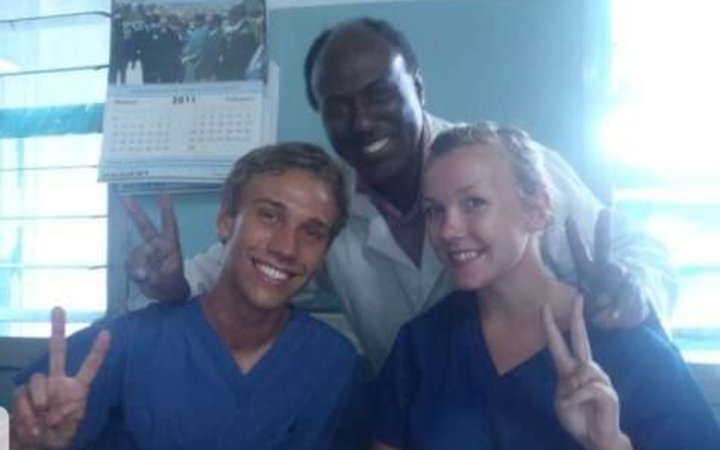 I couldn’t afford it, so I fundraised, which was an adventure! A group of us hosted a race night where we raised quite a bit. We hosted it at the sports club and played pre-recorded races on the big screen. We invited all our friends, family, and friends of friends. It was a really fun night, and it raised a couple hundred pounds– brilliant.
I couldn’t afford it, so I fundraised, which was an adventure! A group of us hosted a race night where we raised quite a bit. We hosted it at the sports club and played pre-recorded races on the big screen. We invited all our friends, family, and friends of friends. It was a really fun night, and it raised a couple hundred pounds– brilliant.
So, what was it that made you want to go overseas on an experience like this?
Coming from a small town and then moving to Manchester to study, my independence manifested. Nursing helped build my confidence, and I felt like I could stand on my own two feet more.
I wanted an adventure. I’d never done anything like that before. I would have loved to travel, but I wasn’t sure how to fit that in. But my overseas placement was the perfect opportunity to go away for six weeks – it gave me a good taste of what it’s like to be away from home.
We’re so fortunate to have the NHS, so it was important for me to see the differences.
I was also really intrigued about what healthcare would be like in Tanzania. We’re so fortunate to have the NHS, so I needed to see the differences.
Would you have considered arranging your overseas placement independently?
No. I might consider doing that now, as I’m much older and wiser. But at the time, definitely not.
When I booked my flights, I booked my flight to Zanzibar, a completely separate island from Dar es Salaam. But I didn’t realise.
So when my flight landed in Zanzibar, there was no one from Work the World to greet me. And I just panicked. My mum got a panicked phone call from me. But of course, she wasn’t able to do anything.
The benefit of travelling with Work the World was that they were straight on the phone, and we managed to sort everything out. I was soon on a flight to Dar es Salaam, where I was greeted by the Work the World team. They were brilliant throughout it all.
Was there anything that worried you about going overseas for your placement?
Not that I can recall. I was more excited than anything else. I felt comfortable about it because I knew I was going with a reputable organisation like Work the World.
Then, I had a mishap with my flight, but that was the worst that could happen, and it ended up being completely fine, too.
What made you choose Tanzania?
I’ve always loved Africa. I was that child who loved The Lion King, too. In Tanzania, they speak Swahili, and there are so many Swahili words in The Lion King.
It’s also a beautiful place. And I just loved the sound of everything I read about it.
I liked the idea of going back to basics. I wanted to be away from the world that I was used to and appreciate that it would be very different. I wanted to experience that.
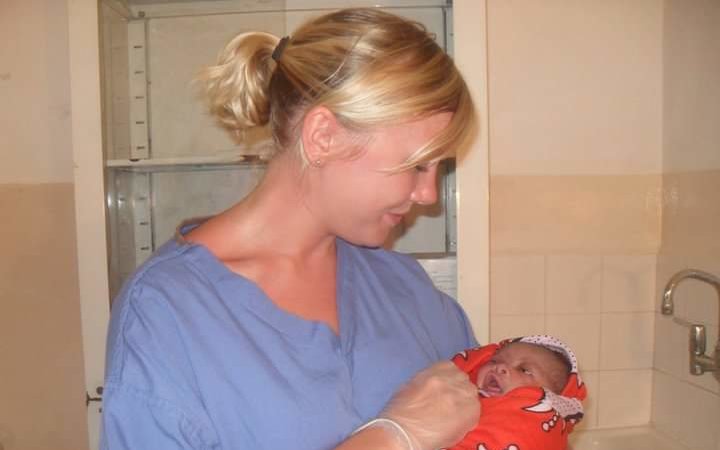
There were also lots of opportunities outside of placement. We were close to Zanzibar, and a lot was going on there. You could go out on the boats and spot dolphins and go snorkelling. You could explore Stone Town and see the turtles as well. There was just so much to do.
I also went to Kikumi National Park and did a weekend camping safari. That was incredible. I’d go back in an absolute heartbeat.
And how did you find the hospital placement? What was the day-to-day like?
We’d get up in the morning and have breakfast at the Work the World house. We’d then take a dala dala, the local transport, to the hospital. It was the cheapest way to travel, and we wanted to experience the local culture.
We didn’t have a routine set in stone because you’d never know what would come that day. We interacted with the local doctors a lot, and we’d be guided by them as to what we could do to help. We’d learn that way.
There was also the language barrier, so we were lucky that the doctors all spoke good English. They were able to support and brief us on the different patients.
What were the most interesting cases you saw during your placement? Are there any particular patients that spring to mind?
I remember one particular day; a seventeen-year-old boy had travelled to the hospital in Dar es Salaam from a village.
He was suffering from severe gangrene across both his legs. I wondered why his parents would not have brought him in sooner. Why had they let it get so bad?
The family was from a village many miles away, and the village had to club together to get the money to bring him into the hospital. But at that point, he was beyond saving. It was a real eye-opener.
I often think of that particular patient when I work for the NHS, and people take it for granted – people just don’t know how lucky they are.
These experiences do shape you. My mum always said that I had changed when I came back from Tanzania. So much can happen in six weeks that these experiences become a part of you.
What were the most striking differences between nursing in Tanzania and the UK?
The lack of any ambulance service was one. Patients had to find their way to the hospital.
There wasn’t any help available until they got to the hospital. Here in the UK, we can just pick up the phone and get help. They don’t have those options in Tanzania.
Let’s talk briefly about where you are now and the timeline after you graduate. How do you think the experience changed your approach for the rest of your degree?
When I returned home from Tanzania, I only had one final placement: our leadership placement. I think my experience in Tanzania helped me to become a better leader. I was more confident in taking the lead and taking charge.
My overseas placement helped me develop the skill of assessing and prioritising – I developed the ability to assess where I needed to focus my attention quickly.
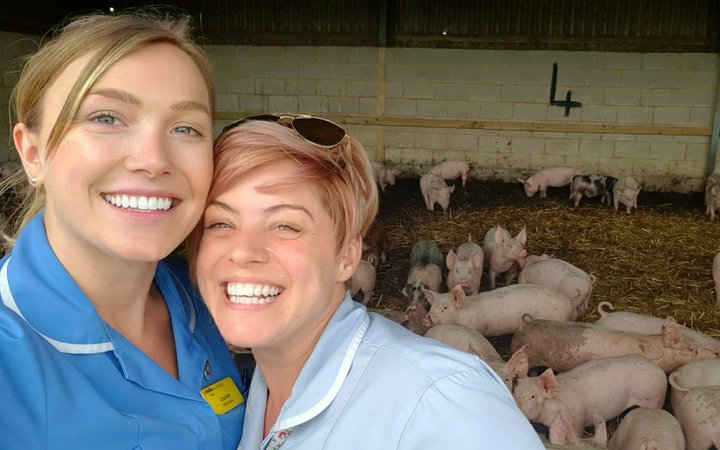
it especially set me up to go out into the world as a registered nurse
It gave me more confidence all around, really. And it especially set me up to go out into the world as a registered nurse the following September. I felt a lot more prepared.
What did you get up to after you qualified?
I tried to go into nursing immediately, but it was hard to get a job in nursing at the time.
So I worked in a pub for a bit whilst doing bank shifts. After a couple of months, I got a position in an Acute Stroke Unit, and I was there for two years, which I enjoyed.
I then moved to Milton Keynes, where I got a role on a Gastro Unit and later worked in the community, which I did for six years. I started as a Community Staff Nurse and was then funded to complete a degree in District Nursing.
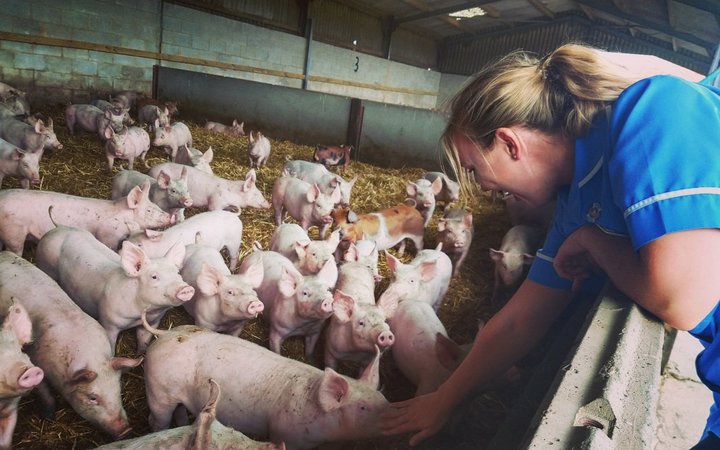
I’ve since taken up a role as a Tissue Viability Nurse Specialist. And that’s what I’m doing now. I love it. I got a lot of exposure to wound care in Tanzania and again when I worked in the community.
Did you draw upon your experience in Tanzania when talking to employers?
I always do. I interviewed with a local newspaper when I returned home from Tanzania, which I’ve kept a copy of in my portfolio.
It’s always a really good topic of conversation in interviews, and I think people can see how passionate I am when I start talking about Tanzania.
Do you think your Work the World experience contributed to where you are now?
Yes, I think so. Especially in my last post, as it made me unique in many ways.
At the start of my career, it was very hard to get interviews. I was a newly qualified nurse, so many of us were around.
I’ve been in my current role as a Tissue Viability Specialist for nine months, and I think my experience overseas sets me apart. In my interview, I spoke about the 17-year-old patient I mentioned earlier. I believe, especially as the role specialises in wound care, they remembered that – I think that helped me get the job.
My experience in Tanzania helped me get to where I am now.
What’s the day-to-day like for you as a Tissue Viability Specialist?
It’s changing at the moment. But normally, first thing in the morning, I would go through patient notes to check if there are any to be concerned about. I would triage these and check in on them.
As Tissue Viability Specialists, we get referrals from everywhere – there are only two of us, and we cover the whole hospital. We cover surgery, acute, maternity, and outpatients. So, we get everything, which I don’t mind. I find it interesting.
I then go and see my patients. I review them, put a care plan in for them, liaise with specialists, and ensure everything is in place for them.
We’re also an advisory service and provide education as well.
My colleague and I set up a digital 30-minute bitesize Tissue Viability Session on a Thursday. We’ve covered wound infection, negative pressure therapy, pressure ulcers, moisture lesions, and almost everything else.
We started recording these sessions, and it has grown and grown. Teaching this way has been interesting as it’s not something I have done before. I’ve got experience with patient and carer education, but I’d never run sessions with nurses, doctors or consultants. But I enjoyed it!
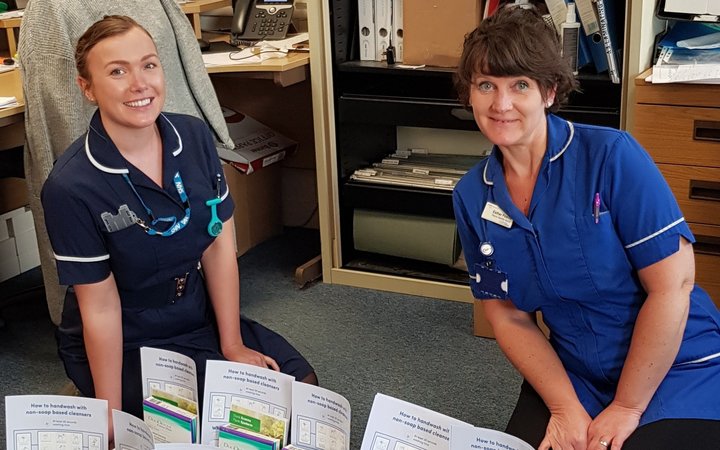
Do you have any words of encouragement for current students considering undertaking an overseas placement?
I’d say, just do it! If you’ve ever considered doing it, you should go for it. It’s so worth it.
Of course, it will be hard, and it will test you. It’s challenging at times, but that’s a good thing. Nursing does that anyway. So why not get as much exposure to that beforehand?
There’s the opportunity to do some travelling and have fun around the placement. Go and experience what it is like to nurse in a different culture. It’s important to go out and expand your horizons when you can.
Discover more about our Electives in Africa. You'll find various unique destinations offering eye-opening clinical experiences and adventures.

START
YOUR JOURNEY
Want to go on a trip like Leanne's? Choose your discipline to get started!
Want to go on a trip like Leanne's? Choose your discipline to get started!
